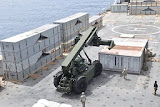Countries like Australia, New Zealand and the United States are weighing investigations into the packaged spices made by the companies after Hong Kong authorities raised a red flag over their quality.
This isn’t the first time that the two — among the largest companies in India — have faced these kinds of issues, with the US Food and Drug Administration ordering a recall of Everest spice mixes in 2023 and some MDH products in 2019, both due to salmonella contamination.
The Centre for Food Safety (CFS) in Hong Kong said in a statement on April 05, 2024 that it found ethylene oxide (ETO), a pesticide that can cause cancer if consumed in large amounts, in three types of packaged spices manufactured by MDH and one made by Everest. The products were taken off the shelves and recalled, the CFS said.
Taking its cue from the Hong Kong authorities, the Singapore Food Agency (SFA) a couple of weeks later recalled the Everest Fish Curry Masala product, saying in a statement that consumers who had purchased it were advised not to consume it.
The SFA also said, “As the implicated products in Hong Kong were imported into Singapore, the SFA has directed the importer to recall the products.” The agency clarified that although there is no immediate risk to consumption of food contaminated with low levels of ethylene oxide, long-term exposure may lead to health issues.
India’s Spice Board, a government agency that oversees spice exports, said that the limit for ETO varies between countries, from 0.02 milligram per kilogram of spices in places like the UK and Norway to 7 milligram per kilogram in Canada and the US.
Pesticides are widely used in agriculture in India, often leaving traces in food products. According to Indian government estimates, the cultivated area where chemical pesticide is used grew 33.4% from the fiscal year ending March 2019 to fiscal 2023, reaching 108,216 hectares. That was about seven times the area cultivated with biopesticides in 2023.
“We tend to look critically at the end product, but even more rigor is needed at the level of the ingredients,” said Devangshu Dutta, CEO at consultancy firm Third Eyesight, referring to the use of pesticides in cultivation. “Otherwise, we will end up kind of catching the product at the last point of control, which is not enough.”
Hong Kong and Singapore did not disclose the amount of ETO content in the recalled products. MDH and Everest had not responded to requests for comment by the time of publication.
Authorities elsewhere have also taken note of the allegations. “Food Standards Australia New Zealand is working with our international counterparts to understand the issue with federal, state and territory food enforcement agencies to determine if further action is required in Australia, e.g., a food recall,” the agency told Nikkei Asia in an email statement on Wednesday.
The regulatory scrutiny in the US, Australia, New Zealand, Hong Kong and Singapore, raises questions over an export market worth about US$700 million, research firm Global Trade Research Initiative (GTRI) said in a report on Wednesday.
“Swift investigations and the publication of findings are essential to re-establish global trust in Indian spices,” GTRI said, adding that the “lack of clear communication from government agencies is disappointing.”
Indian food has been under scrutiny in Europe as well. The European Commission Rapid Alert System for Food and Feed estimates that since the beginning of 2023, Indian food products were deemed to pose serious risks in 166 instances. These included nine cases of ethylene oxide found in food supplements and spices in countries including Sweden, Greece and Italy.
The recalls come at a time when New Delhi is rolling out incentives to support local manufacturers and exporters in transforming India into a US$5 trillion economy. India is the world’s largest exporter of spices with shipments worth US$3.9 billion in 2023, followed by Vietnam and Mexico, according to data provider Tendata. Those figures give India a market share of 37.2%, with Vietnam at 28.1% and Mexico at 9.6%.
Poor food quality in India stems from a general lack of awareness about food safety and insufficient resources to track ingredients, among other reasons, said US-based food and beverage consultancy AIB International in a report in October.
The Food Safety and Standards Authority of India found 16,582 samples unsafe in the fiscal year 2022, the latest such data available. That was a threefold jump from the previous year.
“Most of the food and beverage manufacturers in India are focused on reducing costs to make their product affordable to the public,” the report said. “As a result, many cannot prioritize food safety as a pillar of their business because it could prevent them from meeting their profit margins.”
“Food manufacturing and processing facilities can lack the resources to maintain proper hygiene,” it noted, adding that food-borne illnesses in India is estimated to top 100 million every year.






